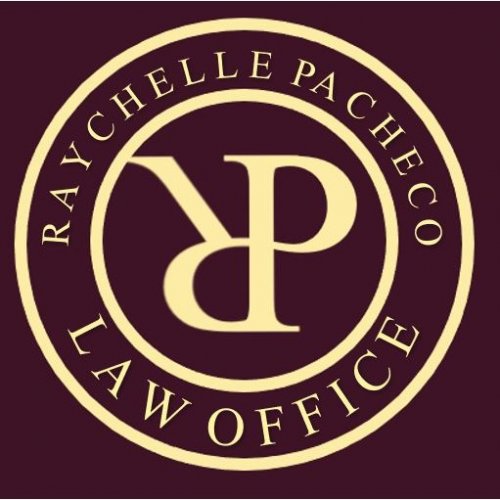Best Bad Faith Insurance Lawyers in Philippines
Share your needs with us, get contacted by law firms.
Free. Takes 2 min.
Or refine your search by selecting a city:
List of the best lawyers in Philippines
About Bad Faith Insurance Law in Philippines
Bad Faith Insurance in the Philippines refers to the unethical practices and unreasonable refusals by insurance companies in fulfilling their contractual obligations to policyholders. This can include delays in processing claims, failure to investigate claims efficiently, or unjust denial of coverage. The Insurance Code of the Philippines governs insurance practices in the country, ensuring that insurers act in good faith and in a timely manner when dealing with claims. Bad faith insurance practices can harm policyholders who rely on timely financial support when mishaps occur, making legal avenues crucial for ensuring justice and accountability.
Why You May Need a Lawyer
There are several scenarios where a policyholder may require legal assistance in dealing with bad faith insurance claims:
- The insurance company unjustly denies a valid claim without providing an adequate explanation.
- There is unnecessary delay in processing a claim, leading to financial distress.
- Insurers offer settlements that are significantly lower than the claim's value, without justifiable reasoning.
- Complex legal language in insurance contracts leads to disputes over what is covered and excluded.
- The insurer fails to investigate the claim thoroughly, affecting the outcome negatively.
- Repeated or systemic instances of unethical practices by an insurance company necessitate legal intervention.
A lawyer specializing in bad faith insurance can help navigate these situations, providing advice, representing your case, and ensuring your rights are protected under the law.
Local Laws Overview
The Insurance Code of the Philippines (Presidential Decree No. 612, as amended) is the primary legislation that regulates insurance contracts and practices. Key aspects relevant to bad faith include:
- Timely Response: Insurers are required to act promptly with regard to claims and cannot unduly delay processing.
- Good Faith Requirement: Both insurers and policyholders must act in good faith, adhering to fair practices and honest dealings.
- Contract Clarity: Insurance contracts must be clear and not mislead the policyholder regarding coverage and exclusions.
- Regulatory Oversight: The Insurance Commission offers oversight and can mediate disputes between insurers and policyholders.
- Legal Recourse: Policyholders have the right to seek legal remedy in instances of bad faith, potentially including compensation for damages beyond the original claim amount.
Frequently Asked Questions
What is considered bad faith insurance?
Bad faith insurance occurs when an insurer unreasonably refuses to pay a legitimate claim, delays processing claims without valid reason, or fails to properly investigate or communicate regarding the claim.
How can I prove an insurance company acted in bad faith?
Document every interaction with the insurer, gather evidence of submitted claims and insurer responses, and demonstrate unreasonable delay or unjust denial compared to the contractual obligations.
Can I sue my insurance company for bad faith?
Yes, in the Philippines, you can take legal action against an insurer for bad faith if you can demonstrate that they violated the terms of the insurance contract or the Insurance Code.
How long do I have to file a bad faith claim?
The statute of limitations for filing a claim can vary, so it's crucial to consult with a lawyer immediately to avoid missing any deadlines.
What damages can I recover in a bad faith insurance lawsuit?
Aside from the original claim amount, you may recover damages related to emotional distress, legal costs, and additional financial losses caused by the insurer's bad faith actions.
Does the Insurance Commission help with bad faith claims?
The Insurance Commission regulates insurance practices and can mediate disputes between policyholders and insurance companies, helping resolve issues without the need for court intervention.
Are all insurance policies subject to bad faith regulation?
Yes, all insurance policies in the Philippines fall under the jurisdiction of the Insurance Code, ensuring they are subject to the same regulations regarding fair practices.
Can I still pursue a claim if the policy has expired?
It may be possible to pursue a claim if the incident occurred while the policy was active. However, consult with a lawyer to understand your rights based on specific circumstances.
What should I do if my claim is denied?
Review the denial letter carefully, request further explanations if necessary, and consult with a lawyer to determine if the denial constitutes bad faith.
How can I avoid bad faith insurance issues in the future?
Understand your policy's terms and conditions, maintain thorough documentation of all communications and claims, and promptly address any concerns with your insurer to avoid future disputes.
Additional Resources
For further assistance and information on bad faith insurance in the Philippines, consider reaching out to the following resources:
- Insurance Commission: They oversee the regulation and resolution of disputes within the insurance industry.
- Philippine Lawyers Association: Locate a legal professional specializing in insurance law.
- Consumer Protection Groups: Organizations that can offer guidance on consumer rights and assistance with insurance disputes.
Next Steps
If you believe you are dealing with a bad faith insurance situation, consider the following steps:
- Gather Documentation: Compile all relevant documents, including policy details, claim submissions, and correspondence with the insurer.
- Consult a Lawyer: Reach out to an attorney experienced in insurance law to evaluate your case and guide you on legal options.
- Contact the Insurance Commission: If necessary, file a complaint with the Insurance Commission to seek mediation or assistance.
- Consider Legal Action: Based on your lawyer's advice, you may consider filing a lawsuit against the insurer for bad faith practices.
Lawzana helps you find the best lawyers and law firms in Philippines through a curated and pre-screened list of qualified legal professionals. Our platform offers rankings and detailed profiles of attorneys and law firms, allowing you to compare based on practice areas, including Bad Faith Insurance, experience, and client feedback.
Each profile includes a description of the firm's areas of practice, client reviews, team members and partners, year of establishment, spoken languages, office locations, contact information, social media presence, and any published articles or resources. Most firms on our platform speak English and are experienced in both local and international legal matters.
Get a quote from top-rated law firms in Philippines — quickly, securely, and without unnecessary hassle.
Disclaimer:
The information provided on this page is for general informational purposes only and does not constitute legal advice. While we strive to ensure the accuracy and relevance of the content, legal information may change over time, and interpretations of the law can vary. You should always consult with a qualified legal professional for advice specific to your situation.
We disclaim all liability for actions taken or not taken based on the content of this page. If you believe any information is incorrect or outdated, please contact us, and we will review and update it where appropriate.
Browse bad faith insurance law firms by city in Philippines
Refine your search by selecting a city.
















